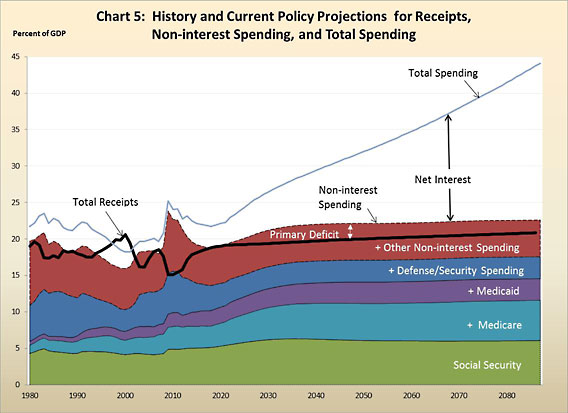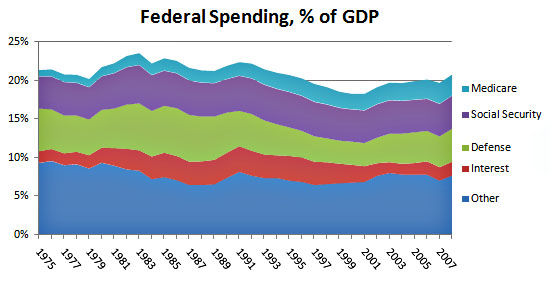
With the budget crisis now on its way to resolution, it’s worth reminding everyone that, in fact, the federal budget isn’t really in bad shape. As Ryan Cooper of the Washington Monthly notes this morning, long-term predictions of doom are essentially based on one thing: the rising cost of health care:
The CBO’s model has a factor which assumes that health care costs will continue to grow much faster than the economy forever—which means that if we get health care cost growth under control, our deficit “problem” will vanish entirely.
The conservative reply is that the way to get health care costs under control is to simply have less health care. We must “reform” entitlements; meaning raise the Medicare retirement age, cut Medicaid, etc. We can’t afford to be generous, and some people are just going to have to go endure hardship or we’re going to bankrupt the state.
But as the Monthly has long shown, this is nonsense. In fact, the United States’ world-record health care costs are driven by a combination of policy factors, both on the private and the government side….”Centrist” elites don’t seem to think that something counts as reform unless it’s punishing a poor person somewhere, but the real action is in the policy design. Health care is expensive because of inefficiency, monopoly politics, lack of research, and interest group lobbying, not because Medicare is too generous. In fact, health care cost growth has slowed considerably since the passage of Obamacare, so if the administration manages to fix its IT disaster we could be in good shape already.
Yep. The chart below shows federal spending through 2008 in order to illustrate historical trends clearly without the spike of the Great Recession. As you can see, domestic spending (“Other”) is declining; interest expense is declining; defense spending is declining; and Social Security spending is flat. It will increase a bit over the next few decades, but only by a point or two of GDP.
And then there’s Medicare, which is increasing. But Medicare is increasing because (a) the population is aging, and (b) overall health care costs are rising. We can’t do anything about aging, which means that essentially our entire long-term budget problem is caused by rising health care costs. That’s it. If you’re actually serious about this stuff, you’ll spend essentially 100 percent of your time on policy proposals designed to reduce America’s insanely high health care costs. Obamacare is a start, but there’s still a lot more to be done.
















